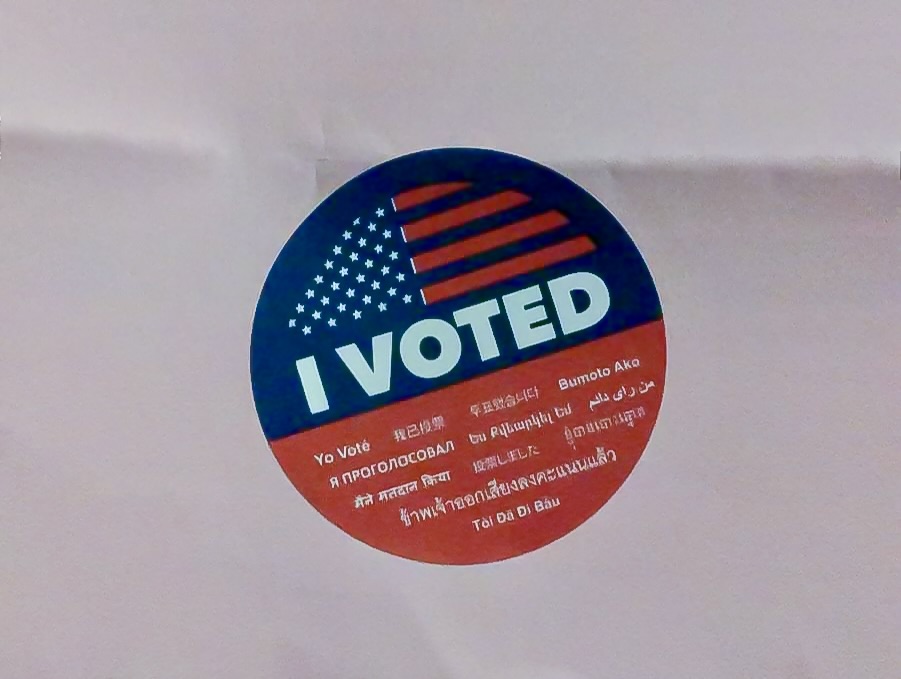As I get closer to voting in my first presidential election, I am reminded again and again how important it is that we don’t forget the immense power we can wield, even as college students.
But — as the argument goes — we’re so young; how can we be trusted with the potential fate of the nation? We can control our futures, but only if we don’t set aside that ballot in November. Our youth doesn’t make us naive — it makes us adaptable, capable of seeing and solving the problems of today rather than clinging to outdated ideas that served a country decades past. We are better suited to learn and act in ways that reflect what needs to be done, not just how it has always been done. The first step: showing up at the polls.
We are a generation coming of age in the fallout of a global pandemic, mounting environmental crises and concerning foreign affairs. These aren’t abstract problems — they’re immediate and urgent, and they require immediate, urgent solutions. But nothing will change if we don’t believe in our ability to affect that change. There are over 40 million potential Gen Z voters, which is enough to constitute a fourth of the electorate. Imagine the seismic impact we could have if we all exercised our right to vote. Yet some of us remain on the sidelines, disillusioned or overwhelmed.
Gen Z is on track to be the best-educated voting generation ever, and yet also constitutes a high number of overall voters who are frustrated by the government and its lack of concern about their issues. With the potential influence of one fourth of the electoral body, we can’t afford to lose the power we wield to shape our futures.
Our generation is already bringing concerns to the table that could hold the government accountable. Issues like reproductive rights, climate change and the war in Gaza seem like they will dominate Gen Z’s political priorities in this election. The general attitudes of disillusionment surrounding these issues might not seem reassuring, but converting that dissatisfaction into action allows our generation to bring the country closer to the future we want to see.
As far away as we may feel from the actual machinations of government, the impact of everyday citizens on the political process — especially young citizens — has been felt throughout our history. Our own campus has felt the effects of young adults in and around the school sending strong messages over the decades.
In the late ’60s to early ’70s, opposition to the Vietnam War rallied students across the nation, holding the federal government accountable for its actions overseas. In the same decade, the Stonewall riots set into motion a movement that improved the perception and protections of members of the LGBTQ+ community, a movement involving many young adults living a few blocks from where we take our classes today. Yet in the present day, similar levels of mobilization for political causes have yet to be seen. Being young in such a vast country is intimidating, but we’ve seen that truly nothing is out of our reach through the power of collective action. The hardest part is always just taking the first steps towards our goals. A 2024 Harvard Youth Poll shows that 56% of young Americans are planning to vote in the upcoming election — let’s be the generation that puts these estimates to shame.
One of the most dangerous things we can do for our country is to stay out of the way. Many of us aren’t used to being involved with politics, but we would do ourselves a disservice by forfeiting our power to make change. It is election season, and we are in a hub of discussion, debate and learning. In this digital age, we have the world’s information at our fingertips. Never in our lives has it been easier to educate ourselves about the world around us.
Forming habits of participation early sets us up to be engaged citizens for the rest of our lives, and creates a ripple effect of civic engagement among friends, family and members of your community. In less than a month, we’ll have the chance to make our voices heard. Don’t let it slip by. This election is about more than just politics — it’s about taking control of our futures.
How to register to vote: How to register to vote | USAGov
Deadlines by state: Voter Registration Deadlines
WSN’s Opinion section strives to publish ideas worth discussing. The views presented in the Opinion section are solely the views of the writer.
Contact Brynna Gritter Kenneke at [email protected].


























































































































































